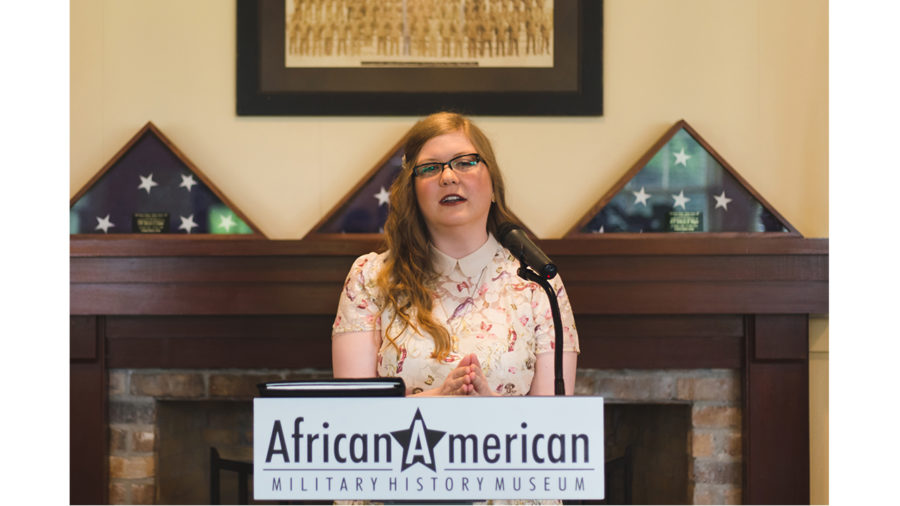Grant helps COHCH catalog Civil Rights history
On April 12, the Center for Oral History and Cultural Heritage hosted a formal launch for its National Endowment for the Humanities Project titled “The Struggle for Civil Rights in Mississippi: Providing Access at the 50th Anniversary of Freedom Summer.”
The African American History Museum in downtown Hattiesburg hosted the event in coordination with the Department of History, the Department of Interdisciplinary Studies and the Center for the Study of the Gulf South.
The center received the NEH grant in May 2014 to make the audio and text of more than 425 interviews related to the Civil Rights Movement in Mississippi digitally available. At the event, the Center recognized the College of Arts and Letters, Southern Miss Libraries, the Department of History and iTech — all of whom worked together to make the project possible over the past two years.
According to the NEH’s website, the grant is a federally funded endowment presented to cultural institutions, such as libraries, museums and universities, that want to promote the humanities through research and archive preservation.
Hayden McDaniel, a Ph.D. candidate in the Department of History, serves as the Project Coordinator for the COHCH.
“The COHCH has been at the forefront of gathering oral histories since its inception in 1971 under Dr. Orley B. Caudill,” McDaniel said. “Our collections number more than 4,000, which makes it one of the largest of its kind in the nation. I hope to one day have all of these interviews accessible online.”
McDaniel said the techniques used in this project will set the precedent for similar projects by the COHCH and others in the future.
“The NEH grant and the project launch represent a simple idea—the idea that the voices of these brave Americans do not solely belong on the shelves of archives or on the stacks at local libraries,” said Co-Director of the COHCH and history professor Kevin Greene. “These stories belong to the people — the folks here in Hattiesburg, and in Mississippi, and in the United States. This is their history. This is our history. And as such, we need to get these amazing testimonies in the hands of researchers and patrons investigating discrimination today, and also into the hands of those ready [to] challenge discrimination tomorrow. There are lessons to be learned from the brave folks documented in this collection. The Center is proud to support and direct such great work.”
For more information on the Center for Oral History and Cultural Heritage, as well as the National Endowment for Humanities Project, visit their web page at usm.edu/oral-history.

























